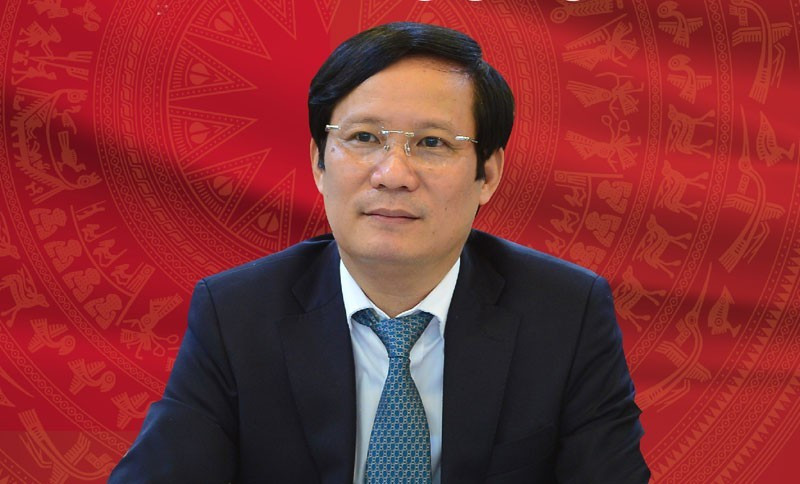Strategic push for the private economy
With a spirit of reform and innovation, Resolution No. 68-NQ/TW dated May 4, 2025, issued by the Politburo on the development of the private economy not only provides fresh inspiration for the business community but also sets out concrete requirements for improving the investment environment and promoting sustainable national economic development.

To gain a clearer understanding of the resolution’s impact on the business community and the direction for its implementation in the near future, Nhan Dan Newspaper spoke with Pham Tan Cong, President of the Viet Nam Chamber of Commerce and Industry (VCCI), on this matter.
Reporter: Resolution No. 68-NQ/TW can be regarded as a strategic breakthrough, identifying the private economy as one of the most important driving forces of the national economy. Could you share the business community’s reaction to this resolution?
VCCI President Pham Tan Cong: Over a month after the issuance of Resolution No. 68-NQ/TW, the business community remains enthusiastic and optimistic. They have warmly welcomed the resolution’s innovative spirit, noting the Party’s decisive removal of outdated preconceptions and prejudices against Viet Nam’s private sector and its recognition of the sector’s vital role in national development. Businesses now see a new opportunity for stronger growth, supported by more explicit policies on institutional reform and the business environment.
Many entrepreneurs have shared with us that the resolution marks a significant milestone, reflecting the Party and State’s strategic vision for the private sector. They feel encouraged, more recognised, and further motivated after years of perseverance through numerous difficulties. The shift from the State’s role of merely “removing obstacles” or “easing policy bottlenecks” to that of “proactive facilitation” is deeply appreciated.
Reporter: In your view, what are the current barriers hindering the private sector’s development, and what solutions is VCCI proposing?
VCCI President Pham Tan Cong: Firstly, there are institutional barriers—complicated, overlapping business conditions and administrative procedures, and high unofficial costs. According to many businesses, a land-use investment project is currently subject to administrative procedures under at least 12 laws and over 20 decrees and circulars, with completion times that are unpredictable—typically 18 to 24 months at best, and up to three years or more in other cases.
Second, policy implementation in some localities is not uniform, grassroots staff sometimes lack the skills and spirit to serve businesses, many useful regulations are "distorted" when implemented.
Third, access to resources such as land, capital, technology and markets remains a difficult problem for many businesses, especially small and medium enterprises.
The VCCI recommends that the Government continue reviewing, cutting, and simplifying outdated or irrelevant business conditions in a substantial and effective manner. This process should be based on independent impact assessments and involve the business community, the VCCI, and professional associations to ensure alignment with practical needs.
Additionally, greater application of technology is needed to enhance transparency and shorten processing times. In its role as the national representative of the business community, the VCCI has already begun to implement Resolution No. 68-NQ/TW with a clear action plan, including the establishment of a dedicated centre that will work with the media and local authorities to support enterprises.
Reporter: You just mentioned that the VCCI has established a specialised centre to collaborate with the press and support businesses. What is the role and significance of this centre in helping enterprises effectively implement Resolution No. 68-NQ/TW?
VCCI President Pham Tan Cong: This centre serves as an “information hub” connecting enterprises, government authorities, and media agencies. Its primary goal is to ensure that information about Resolution No. 68-NQ/TW and the relevant support policies reach the business community fully, accurately, and in a timely manner.
The VCCI recognises that one of the biggest barriers facing businesses is a lack of clear and accessible information about new policies. The centre addresses this by closely working with media outlets, organising workshops and roundtables, and providing specific guidance materials to businesses.
Furthermore, the centre collects feedback and suggestions from enterprises and conveys them to government authorities as a basis for adjusting policies to match real-world conditions. The VCCI also aims to use digital platforms to improve information accessibility, build an online information portal, and organise direct dialogue forums between businesses and local governments. This is how VCCI supports enterprises—not only in the implementation of Resolution No. 68-NQ/TW but also throughout their long-term development journeys.
Reporter: To ensure that Resolution No. 68-NQ/TW is effectively implemented and brings tangible benefits to the business community, what recommendations does VCCI have for the Government and relevant agencies?
VCCI President Pham Tan Cong: Resolution No. 68-NQ/TW is not merely a policy document—it serves as a compass guiding the development of the private economy in the new era. However, to fully realise its potential and ensure practical implementation, the business community hopes that the Government will continue identifying and eliminating any and all known obstacles.
In addition, the digitalisation of administrative procedures should be further accelerated through modern technological platforms to reduce the time and cost burden on businesses. There must be mechanisms to evaluate, supervise, and strictly handle cases where officials and civil servants cause harassment or inconvenience to businesses.
We also recommend fostering a spirit of innovation in administrative reform at the local level. This will ensure that policies are not only issued on paper but also translated into action, delivering tangible benefits to enterprises.
Finally, the VCCI proposes that supporting and developing private enterprises should become a key criterion in assessing the performance of local authorities. The Government should assign specific tasks to localities, treating private investment attraction and enterprise development as top priorities. This will be the driving force for localities to be more proactive in improving the business environment, thereby creating breakthroughs for the private economic sector. Only then will the spirit of the Resolution be transformed into concrete and synchronous actions, thereby spreading strongly and widely throughout the entire government system at all levels.
Reporter: Thank you very much!








